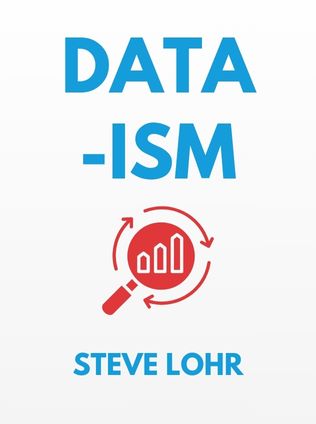
Data-ism
The Revolution Transforming Decision Making, Consumer Behavior, and Almost Everything Else
By Steve Lohr
Published 05/2015
About the Author
Steve Lohr is a seasoned technology, business, and economics journalist for the New York Times. Over his extensive career, he has covered technology since the early 1990s, was a foreign correspondent for a decade, and served in editorial roles. In 2013, he was part of a team that won the Pulitzer Prize for explanatory reporting. Lohr is the author of several books, including Go To: The Story of the Math Majors, Bridge Players, Engineers, Chess Wizards, Maverick Scientists, and Iconoclasts -- the Programmers Who Created the Software Revolution.
Main Idea
"Data-ism: The Revolution Transforming Decision Making, Consumer Behavior, and Almost Everything Else" by Steve Lohr explores the transformative power of big data in various aspects of life. Lohr argues that data-driven decision-making is revolutionizing industries, enhancing efficiency, and providing insights that surpass human intuition. However, he also addresses the limitations and challenges associated with relying solely on data.
Table of Contents
- Introduction
- The Power of Quantification
- Data-Driven Decision Making
- Challenges of Context and Interpretation
- Human Intuition vs. Data
- Case Studies in Data-Driven Success
- The Future of Data-ism
- Conclusion
Introduction
In the introduction, Lohr sets the stage by discussing the growing influence of big data. He addresses concerns from critics like Leon Wieseltier, who worry that the quantification of everything might replace human wisdom. Lohr acknowledges these fears but presents a balanced view, showing both the benefits and limitations of a data-centric world.
"Quantification is the most overwhelming influence upon the contemporary American understanding of, well, everything." - Leon Wieseltier
The Power of Quantification
Lohr illustrates the immense potential of data through various examples. For instance, McKesson Corporation uses data to manage its extensive pharmaceutical distribution network efficiently. By leveraging sensors and shipment-tracking software, McKesson achieves remarkable accuracy and efficiency in its operations.
"McKesson's success illustrates where the big-data approach shines today. It shows data really being used to guide decisions and to make better decisions, ones that trump best guesses and gut feel, experience and intuition." - Steve Lohr
- McKesson Corporation using data for granular analysis and predictive modeling.
- IBM's modeling software helping McKesson centralize expensive drug distribution, reducing inventory levels and saving costs.
Data-Driven Decision Making
Data-driven decision-making offers a significant advantage over traditional methods. Lohr explains how big data provides clarity and confidence to organizations, enabling them to make informed decisions. This shift from intuition to data-backed decisions is transformative across various sectors.
"The software gave McKesson the clarity and the confidence to go ahead." - Steve Lohr
- McKesson using data to optimize distribution and reduce costs.
- Organizations leveraging big data to improve profit and loss analyses.
Challenges of Context and Interpretation
One of the fundamental challenges of data-driven decision-making is ensuring the data is put into the right context. Lohr uses the example of interpreting the number "39" to highlight the importance of context. Without context, data can be meaningless or misleading.
Sign up for FREE and get access to 1,400+ books summaries.
You May Also Like
Rich Dad Poor Dad
What the Rich Teach Their Kids About Money - That the Poor and Middle Class Do Not!
By Robert T. KiyosakiFreakonomics
A Rogue Economist Explores the Hidden Side of Everything
By Steven D. Levitt and Stephen J. DubnerThe Lean Startup
How Today's Entrepreneurs Use Continuous Innovation to Create Radically Successful Businesses
By Eric RiesWho Moved My Cheese?
An Amazing Way to Deal with Change in Your Work and in Your Life
By Spencer Johnson, M.D.Factfulness
Ten Reasons We're Wrong About the World – and Why Things Are Better Than You Think
By Hans RoslingMake Your Bed
Little Things That Can Change Your Life...And Maybe the World
By William H. McRaven



















